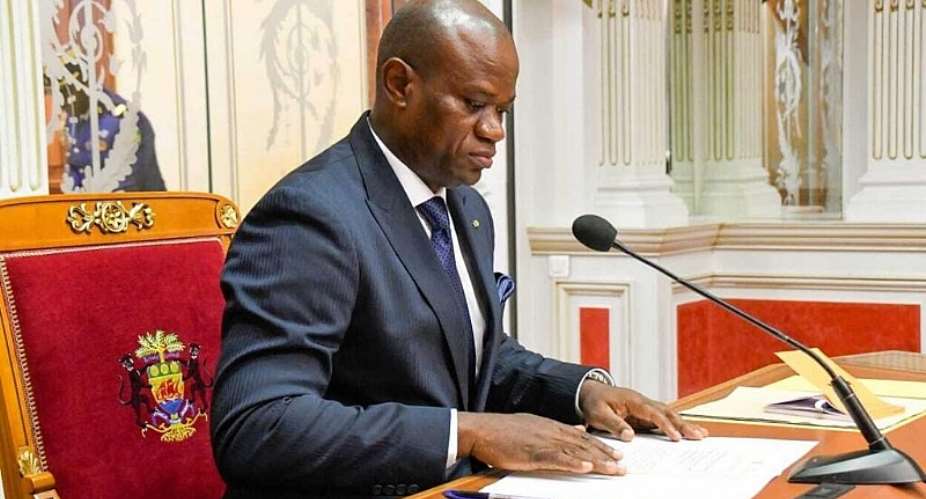Gabon's military leaders who deposed president Ali Bongo in August announced on Monday that elections would be held in August 2025 under a timetable that first foresees national dialogue.
"August 2025: elections and end of the transition," regime spokesman Ulrich Manfoumbi Manfoumbi said on live state TV, referring to an official but "indicative" transition timeframe, adopted by cabinet which has yet to be submitted to a national conference next year.
An Inclusive National Dialogue is now scheduled for April 2024, to be made up of all the country's "vital actors".
Coup leader General Brice Oligui Nguema was swiftly sworn in as transitional president after the coup.
He had promised to hand back the country to civilian rule with elections after a transitional period, however, no date had been given until now.
Political transition
Under this transition timetable, the Gabonese people have been invited to submit suggestions, which will be pulled together and presented to the national conference next April.
In early June 2024, the transitional parliament will become a constituent assembly, Manfoumbi Manfoumbi said on Monday.
Between November and December next year, a draft constitution will be put to a referendum, he added.
The various stages outlined are "subject to change" following the results of the Inclusive National Dialogue, however, he said.
Oligui quickly appointed members of transitional institutions after the coup, including a government, national assembly, senate and a constitutional court.
Post-coup justice
The general led a coup on 30 August, moments after then incumbent president Ali Bongo, 64, whose family ruled the central African state for 55 years, was declared winner of a presidential election which the army and opposition declared fraudulent.
Bongo had ruled the central African country since 2009, following his father, Omar Bongo Ondimba, in power since 1967.
The military and police chiefs who overthrew him joined forces to carry out a bloodless coup, widely backed by politicians, civil society and the public in general.
As well as branding the election result a fraud, the opposition and the military coup leaders accused Ali Bongo's regime of widespread corruption and bad governance.
The putschists also accuse Bongo's wife Sylvia Bongo Ondimba Valentin and their eldest son Noureddin Bongo Valentin of having manipulated the former president, who is suffering the after-effects of a serious stroke in 2018.
Both are under investigation as part of a wider inquiry into alleged massive embezzlement of public money, and have been detained since the coup.
(with newswires)





 Two off-duty Police Officers shot by unknown gunmen on motorbike at Trasacco
Two off-duty Police Officers shot by unknown gunmen on motorbike at Trasacco
 Let’s fight monetisation of our democracy- Abu Kansangbata
Let’s fight monetisation of our democracy- Abu Kansangbata
 Prof Jane Naana Opoku-Agyeman attends central regional NDC meeting
Prof Jane Naana Opoku-Agyeman attends central regional NDC meeting
 Investigations into Cecilia Dapaah’s scandal not closed – AG
Investigations into Cecilia Dapaah’s scandal not closed – AG
 Austin Gamey criticizes gov't review of labour act
Austin Gamey criticizes gov't review of labour act
 Cecilia Abena Dapaah’s case incomplete without FBI’s finding – Edudzi Tameklo
Cecilia Abena Dapaah’s case incomplete without FBI’s finding – Edudzi Tameklo
 I’ll give ‘Kayayei’ workers tricycles if elected President – Dr Ankrah
I’ll give ‘Kayayei’ workers tricycles if elected President – Dr Ankrah
 Bawumia commissions first phase of Appiatse reconstruction project
Bawumia commissions first phase of Appiatse reconstruction project
 Nti fertilizer was not submitted for testing — Witness in Opuni’s trial confirms
Nti fertilizer was not submitted for testing — Witness in Opuni’s trial confirms
 Family of Ghanaian fishery observer demand answers months after his death
Family of Ghanaian fishery observer demand answers months after his death
